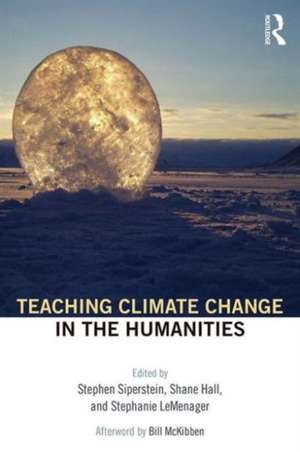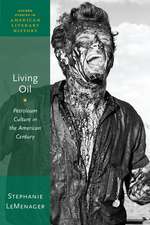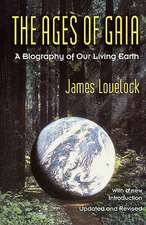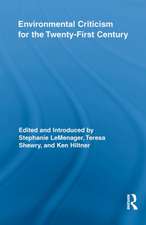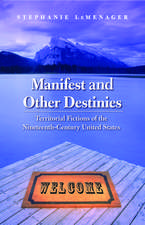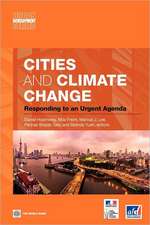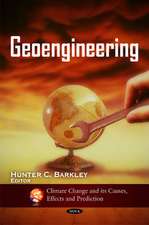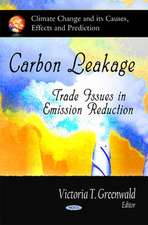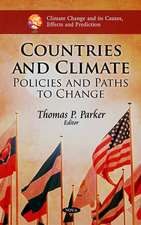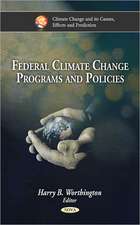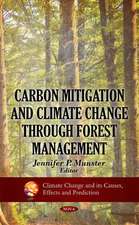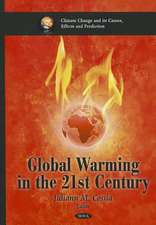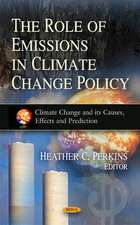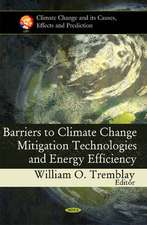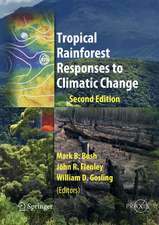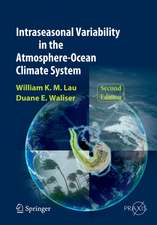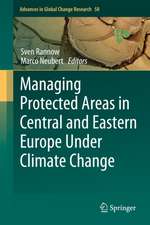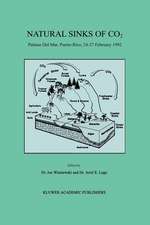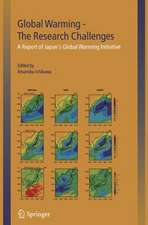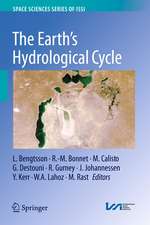Teaching Climate Change in the Humanities
Editat de Stephen Siperstein, Shane Hall, Stephanie LeMenageren Limba Engleză Paperback – 12 sep 2016
| Toate formatele și edițiile | Preț | Express |
|---|---|---|
| Paperback (1) | 369.77 lei 6-8 săpt. | |
| Taylor & Francis – 12 sep 2016 | 369.77 lei 6-8 săpt. | |
| Hardback (1) | 997.93 lei 6-8 săpt. | |
| Taylor & Francis – 16 sep 2016 | 997.93 lei 6-8 săpt. |
Preț: 369.77 lei
Nou
Puncte Express: 555
Preț estimativ în valută:
70.76€ • 73.61$ • 58.42£
70.76€ • 73.61$ • 58.42£
Carte tipărită la comandă
Livrare economică 14-28 aprilie
Preluare comenzi: 021 569.72.76
Specificații
ISBN-13: 9781138907157
ISBN-10: 1138907154
Pagini: 320
Ilustrații: 16
Dimensiuni: 156 x 234 x 24 mm
Greutate: 0.45 kg
Ediția:1
Editura: Taylor & Francis
Colecția Routledge
Locul publicării:Oxford, United Kingdom
ISBN-10: 1138907154
Pagini: 320
Ilustrații: 16
Dimensiuni: 156 x 234 x 24 mm
Greutate: 0.45 kg
Ediția:1
Editura: Taylor & Francis
Colecția Routledge
Locul publicării:Oxford, United Kingdom
Cuprins
Introduction, Stephen Siperstein, Shane Hall, Stephanie LeMenager
Part 1: Who We Are
1. Making Climate Change Our Job, SueEllen Campbell
2. Climate Disruption Involves All Disciplines: Who Becomes a Mentor? James Engell
3. When the Newt Shut Off the Lights: Scale, Practice, Politics, Stacy Alaimo
4. Known and Not Knowing Climate Change: Pedagogy for a New Dispensation, Matthew Kearnes
5. Energy, Climate and the Classroom: A Letter, Imre Szeman
6. Will the End of the World Be on the Final Exam? Bob Wilson
7. Teaching Climate Crisis in the Neoliberal University: On the Poverty of the Environmental Humanities, Upamanyu Pablo Mukherjee, Graeme Macdonald, Nicholas Lawrence, and Jonathan Skinner
8. Climate Change, Public Engagement and Integrated Environmental Humanities, Steven Hartman
Part 2: Teaching and Learning Climate Change Head On
9. Thinking Climate Change Like a Planet: Notes From an Environmental Philosopher, J. Baird Callicott
10. Teaching About Climate Change and Indigenous Peoples: Decolonizing Research and Broadening Knowledge, Mark Carey, Kathy Lynn, Kevin Hatfield, and Jennifer O’Neal
11. Teaching Teleconnection, Gillen D’Arcy Wood
12. Building Paradise in the Classroom, Janet Fiskio
13. Learning in the Anthropocene: Environmental Justice and Climate Pedagogy, Robert Figueroa
14. In-Flight Behaviour: Teaching Climate Change Literature in First Year Intro English, Greg Garrard
15. Learning from the past – teaching past climate change and catastrophes as windows onto vulnerability and resilience, Felix Riede, Annette Højen Sørensen, Jan Dietrich, Mogens S. Høgsberg, Mathias V. Nordvig, and Esben B. Niels
16. Climate Visualizations as Cultural Objects, Heather Houser
17. Engaging the ‘Eaarth’: Teaching and Making Climate Change Cultures in an Art and Design, Nicole Merola
18. Signs, Images, and Narratives: Climate Change Across Languages and Cultures, Uwe Küchler
Part 3: Teaching and Learning Climate Change Sideways
19. The Elephant in the Room: Acknowledging Global Climate Change in Courses Not Focused on Climate, Scott Slovic
20. Teaching Climate Change Otherwise, Swayam Bagaria and Naveeda Kahn
21. Teaching Ecological Restoration in the Climate Change Century, Cheryll Glotfelty
22. Exploratory Concepts, Case Studies, and Keywords for Teaching Environmental Justice and Climate Change in a lower-level Humanities classroom, Julie Sze
23. Garbage and Literature: Generating Narrative from a Culture of Waste, Stephanie Foote
24. Teaching literature as climate changes: ecological presence, a globalized world, and Helon Habila’s Oil on Water, Anthony Vital
25. Looking Back to Look Ahead: Climate Change and US Literary History, William Gleason
26. Atlas’ Shifting Shoulders: Teaching Climate Change and Classics, Darragh Martin
27. Stealing the Apocalypse: Myths of Resistance in Contemporary Popular Culture, Anthony Lioi
28. Teaching Climate Change and Film, Stephen Rust
Part 4: Archives and Contexts for Teaching and Learning Climate Change
29. The Persuasive Force of the Right Supplementary Materials for Climate Change Humanities Courses, Patrick D. Murphy
30. Vanishing Sounds: Thoreau and the Sixth Extinction, Wai Chee Dimock
31. Teaching climate change at end of nature: Post-colonial Australia, Indigenous realism, and Alexis Wright’s The Swan Book, Emily Potter
32. When Sea Levels Rise: Writing/Righting Climate Change in Pacific Islanders' Literature, Hsinya Huang
33. Climate Change and Changing World Literature, Karen Thornber
34. Untangling Intentions: Teaching History of Climate Politics, Peder Anker
Afterword, Bill McKibben
Part 1: Who We Are
1. Making Climate Change Our Job, SueEllen Campbell
2. Climate Disruption Involves All Disciplines: Who Becomes a Mentor? James Engell
3. When the Newt Shut Off the Lights: Scale, Practice, Politics, Stacy Alaimo
4. Known and Not Knowing Climate Change: Pedagogy for a New Dispensation, Matthew Kearnes
5. Energy, Climate and the Classroom: A Letter, Imre Szeman
6. Will the End of the World Be on the Final Exam? Bob Wilson
7. Teaching Climate Crisis in the Neoliberal University: On the Poverty of the Environmental Humanities, Upamanyu Pablo Mukherjee, Graeme Macdonald, Nicholas Lawrence, and Jonathan Skinner
8. Climate Change, Public Engagement and Integrated Environmental Humanities, Steven Hartman
Part 2: Teaching and Learning Climate Change Head On
9. Thinking Climate Change Like a Planet: Notes From an Environmental Philosopher, J. Baird Callicott
10. Teaching About Climate Change and Indigenous Peoples: Decolonizing Research and Broadening Knowledge, Mark Carey, Kathy Lynn, Kevin Hatfield, and Jennifer O’Neal
11. Teaching Teleconnection, Gillen D’Arcy Wood
12. Building Paradise in the Classroom, Janet Fiskio
13. Learning in the Anthropocene: Environmental Justice and Climate Pedagogy, Robert Figueroa
14. In-Flight Behaviour: Teaching Climate Change Literature in First Year Intro English, Greg Garrard
15. Learning from the past – teaching past climate change and catastrophes as windows onto vulnerability and resilience, Felix Riede, Annette Højen Sørensen, Jan Dietrich, Mogens S. Høgsberg, Mathias V. Nordvig, and Esben B. Niels
16. Climate Visualizations as Cultural Objects, Heather Houser
17. Engaging the ‘Eaarth’: Teaching and Making Climate Change Cultures in an Art and Design, Nicole Merola
18. Signs, Images, and Narratives: Climate Change Across Languages and Cultures, Uwe Küchler
Part 3: Teaching and Learning Climate Change Sideways
19. The Elephant in the Room: Acknowledging Global Climate Change in Courses Not Focused on Climate, Scott Slovic
20. Teaching Climate Change Otherwise, Swayam Bagaria and Naveeda Kahn
21. Teaching Ecological Restoration in the Climate Change Century, Cheryll Glotfelty
22. Exploratory Concepts, Case Studies, and Keywords for Teaching Environmental Justice and Climate Change in a lower-level Humanities classroom, Julie Sze
23. Garbage and Literature: Generating Narrative from a Culture of Waste, Stephanie Foote
24. Teaching literature as climate changes: ecological presence, a globalized world, and Helon Habila’s Oil on Water, Anthony Vital
25. Looking Back to Look Ahead: Climate Change and US Literary History, William Gleason
26. Atlas’ Shifting Shoulders: Teaching Climate Change and Classics, Darragh Martin
27. Stealing the Apocalypse: Myths of Resistance in Contemporary Popular Culture, Anthony Lioi
28. Teaching Climate Change and Film, Stephen Rust
Part 4: Archives and Contexts for Teaching and Learning Climate Change
29. The Persuasive Force of the Right Supplementary Materials for Climate Change Humanities Courses, Patrick D. Murphy
30. Vanishing Sounds: Thoreau and the Sixth Extinction, Wai Chee Dimock
31. Teaching climate change at end of nature: Post-colonial Australia, Indigenous realism, and Alexis Wright’s The Swan Book, Emily Potter
32. When Sea Levels Rise: Writing/Righting Climate Change in Pacific Islanders' Literature, Hsinya Huang
33. Climate Change and Changing World Literature, Karen Thornber
34. Untangling Intentions: Teaching History of Climate Politics, Peder Anker
Afterword, Bill McKibben
Descriere
Teaching Climate Change in Literary and Cultural Studies constitutes a map and toolkit for anyone wishes to bring together the strengths of literary and cultural studies in order to teach valuable lessons that engage with climate change.
